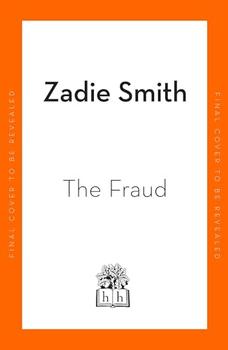Book Club Discussion Questions
In a book club? Subscribe to our Book Club Newsletter and get our best book club books of 2025!
For supplemental discussion material see our Beyond the Book article, Women's Influence in the British Abolition Movement and our BookBrowse Review of The Fraud.
Please be aware that this discussion guide will contain spoilers!
-
What did you know about the historical figures and events around which this novel is centered—William Ainsworth, the Tichborne Trial, and Andrew Bogle and the Hope Plantation? How did this story shape your understanding of pieces of history you already knew, or inspire you to inquire deeper into what you didn't?
- Discuss the relationship between Mrs. Touchet and William. Besides familial ties, what about their personalities, ideologies, and interests maintains their bond until William's death?
- What kind of legacy do you think Mrs. Touchet (as depicted in the novel) would have left on
art and culture had she not been a woman, and/or born into her particular class of society?
Compare the way her perspective guides the narration of most of this novel, with how she
interprets the writings of William, Dickens, and other writers she spends time with.
- Did you interpret this novel to be the work of Mrs. Touchet? What aspects of the narration,
the character development, and the setting make you think the way you do?
- Mrs. Touchet makes a distinction between the theory of law and the theory of truth (386).
What kinds of truths are revealed over the course of the novel, particularly around people's
identities and lineages, and how do those truths intersect with literature and the law?
Which institution feels more truthful to her—and to you?
- Why do you think England is so consumed by the Tichborne Trial? How does their
obsession compare to the response to the work of Dickens?
- Discuss the public response to Dickens's death (132). Do you think people were more upset
to lose the author, the man, or his characters? Is there a figure whose death elicited similar
reactions in your lifetime?
- Consider the parallels between the relationships of Ainsworth and Mrs. Touchet, and Bogle
and Little Johanna. Which of their roles, backgrounds, and present states overlap? Consider
how, when "Bogle caught a glimpse of his own face, in the small mirror, above the hearth,"
he asks, "Who was this well-fed fraud, with a home and a hearth, and a small mirror above
that hearth, and two brown boys, and his own evening paper in his lap?" (315); and his
statement to Mrs. Touchet: "I will survive by any means necessary. It is what my people
have always done, if you understand me" (438).?
- What about Ainsworth's novels make them so popular, if they are not as "good" as other
writers'? Consider this passage: "Keep stealing, my friends! From life for fiction, and from
fiction for life. What a terrible business. At least William did it clumsily, with benign
incompetence. Whereas his friend Charles had done it like a master—like an actor. That was
precisely what was so dangerous about him. Charles Dickens played a part, always." (209).
Are there contemporary writers you know of who fall into similar categories?
- What is it about Andrew Bogle and his circle that puts Mrs. Touchet so at ease? Consider
the way she approaches him after the trial, and her response to the hymns at church:
"Rapture. Beauty. Grace translated—made visible! Had she ever truly heard music until
this moment?" (392).
- What advantages does age grant Mrs. Touchet, in her relationships, her work in society, and
her quest for freedom? How does her age distinguish her from the new Mrs. Ainsworth,
besides the superficial fact of their relative life experiences?
- Was reading Bogle's backstory more interesting to you when he tells it directly to Mrs.
Touchet (chapter 14, volume 5), or through her filtering? What does their conversation
suggest about the racial hierarchy of society at the time, whose voices are allowed to stand
on their own?
- What is the significance of the Great Exhibition housing London's achievements under a
glass dome? What other aspects of life in England at this time are put under glass—for
protection, scrutiny, or deception?
- William says: "Eliza, in this country we have abolished the trade, the practice, the business
itself [of slavery]. Our debt to the African is surely paid in full" (419). Do the events of the
novel support this idea as truth—according to the law or another system? Which groups of
people would agree with William, and who disagrees? Why can he not see the fraudulence
of his own statement?
- At the close of the trial of The Claimant, it's described that "When the end came, it was in
the form of a single, unambiguous sentence: 'Arthur Orton is sentenced to fourteen years'"
(433). Discuss the word "sentence" in this context—what layers of meaning does it contain?
What other "sentences" are delivered throughout the novel, in and outside of courts?
- How do novelists and journalists (and other members of the media) overlap in their
representation of and engagement with the reality of the human condition at the time?
Discuss the different ways fiction and fact create a sense of zeitgeist and inform people's
beliefs and behaviors. How have things changed (or not changed) today?
- Toward the end of the novel, the American Civil War begins. How are the two societies,
America and England, dealing with the questions of race and slavery simultaneously? Which
one seems to be in more of a state of "war" in the late 1800s? How do these same issues of
freedom and enslavement persist in modern society for these two countries and others?
Unless otherwise stated, this discussion guide is reprinted with the permission of Penguin Press.
Any page references refer to a USA edition of the book, usually the trade paperback version, and may vary in other editions.
